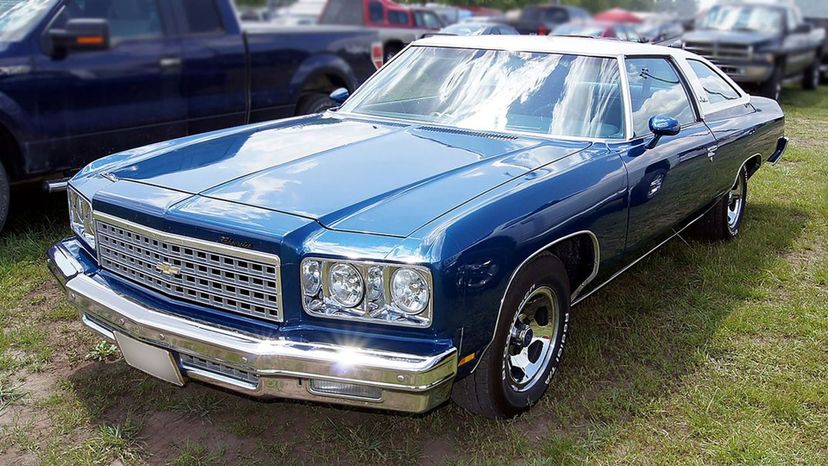
About This Quiz
Can you tell the difference between a Camaro and Corvette, or an Impala and a Vega? Know what distinguishes a Chevy C-line pickup from one with a K-designation? Take our quiz to see how many of these '70s Chevy models you can recognize!
Chevrolet was founded in Detroit in 1911. By the end of the 1920s, it was the best-selling car brand in the United States. Throughout the next few decades, the company reigned supreme as one of the most successful car companies on the planet.
Then came the '70s, when the entire American auto industry was shaken by recession, oil embargoes and ever-increasing safety and emissions regulations. All of these challenges meant a new way of business for Chevy, forcing the company to meet new standards to satisfy government regulations while appealing to buyers and competing with imports.
Despite these challenges, Chevy found plenty of success during the decade, selling plenty of sporty models like the Corvette and Camaro, as well as introducing new models to meet changing demands.Â
Think you can recognize these '70s Chevy models? Prove it with this quiz!
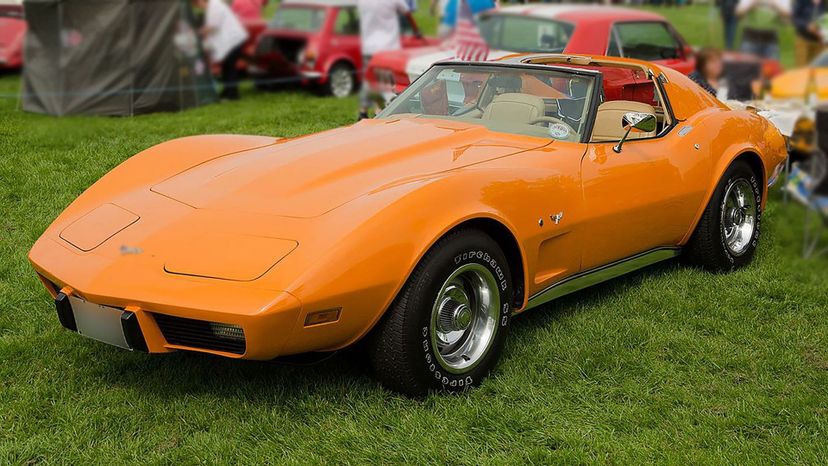
Chevy has been making the Corvette since 1953. Introduced in 1968 and produced through the '70s, the third-generation Corvette (shown) was the first to offer a T-top with removable panels.
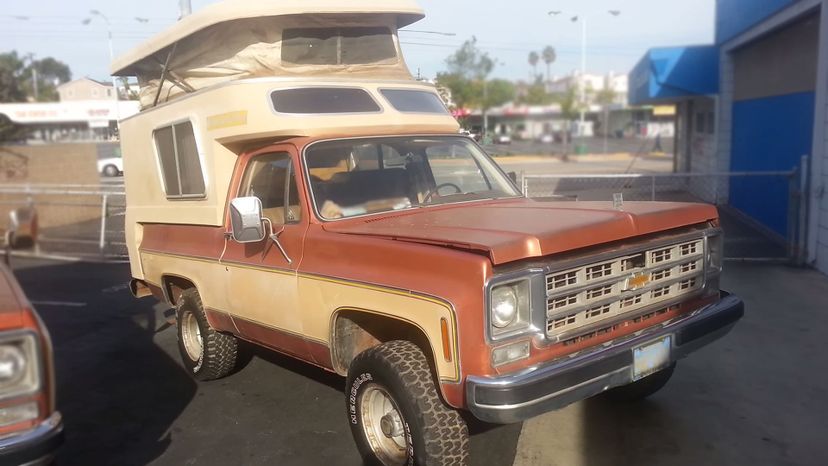
Is it an SUV or a camper? The Chevy Blazer Chalet was both. Offered in 1976 and 1977, the Chalet came with a two-burner stove, a sink, a dinette table and a bed. Options added a fridge and bunks for another two close friends or kids. The price started at about $9,500 and Chevy sold about 1,800 of them. The GMC version was called Casa Grande.
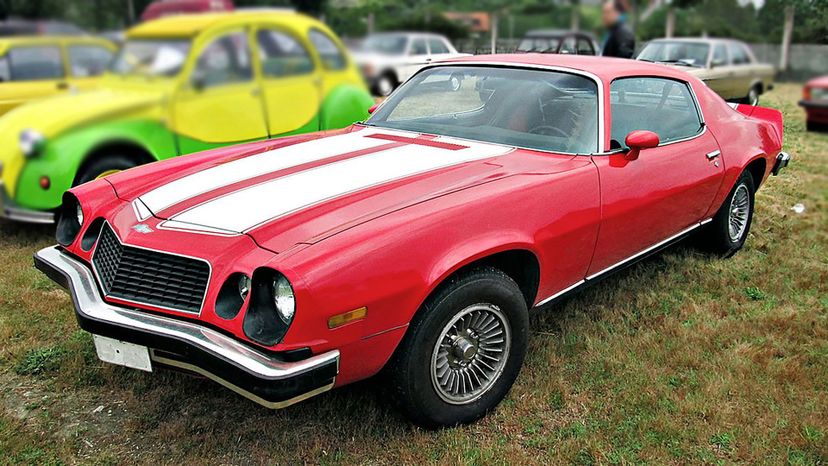
Chevy produced the iconic Camaro sport coupe from 1967 to 2002, then brought it back in 2010. This Mustang competitor was in its second generation in the '70s (pictured), featuring a longer, lower and wider design than the 1967-1969 original. There was no convertible in the second-gen series, however.
Advertisement
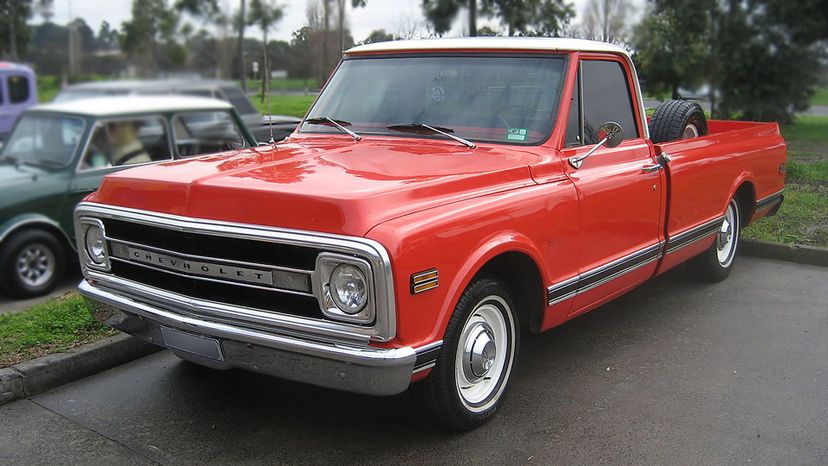
Chevy used the C-10 name on its full-size pickup truck from 1960 to 1999, when it was replaced by the Silverado. The "C†means it was two-wheel drive ("K†was for four-wheel drive), while the "10†was used for half-ton trucks in the '70s.
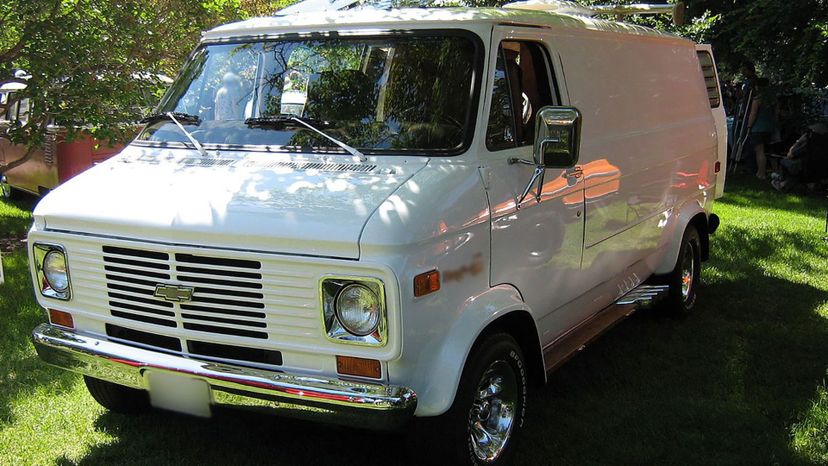
The Chevy Van received a major redesign in 1971, replacing the original cab-over-engine version. The new model had the engine moved forward under a short hood and was available in three and four-door configurations, and in cargo and passenger models. In 1973, Sammy Johns had a #5 hit song with "Chevy Van,†which possibly scared parents of teenage girls and contributed to the "van craze†of the 1970s.
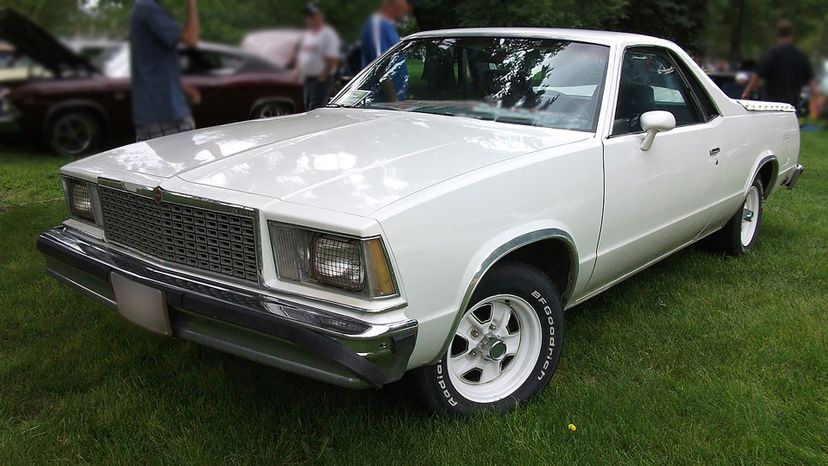
Is it a pickup? Is it a car? Chevy's El Camino was both. Produced between 1959 and 1960 and again from 1964 to 1987, this coupe utility was introduced out to compete against Ford's successful Ranchero. The fourth generation El Camino, built from 1973-1977, was the largest version of this model. The downsized fifth-generation model is pictured.
Advertisement
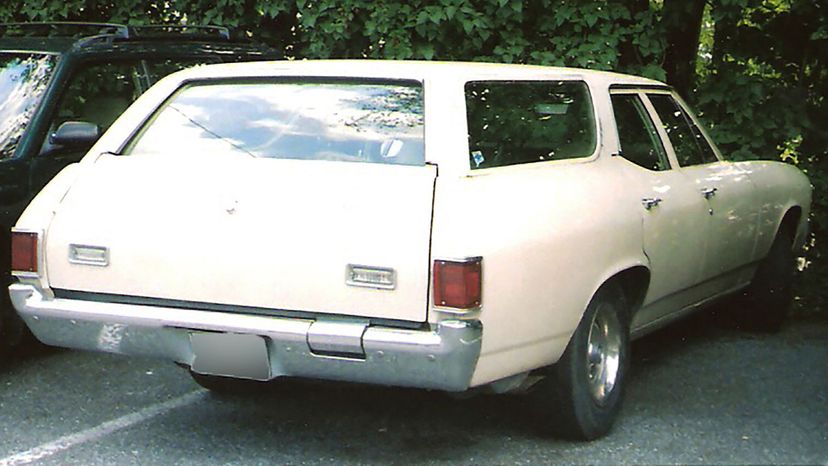
Chevy first used the Greenbrier name on a Corvair-based passenger van in the 1960s. Then, from 1969-1972, it was used on the mid-line Chevelle station wagon, a notch below the Malibu wagon.
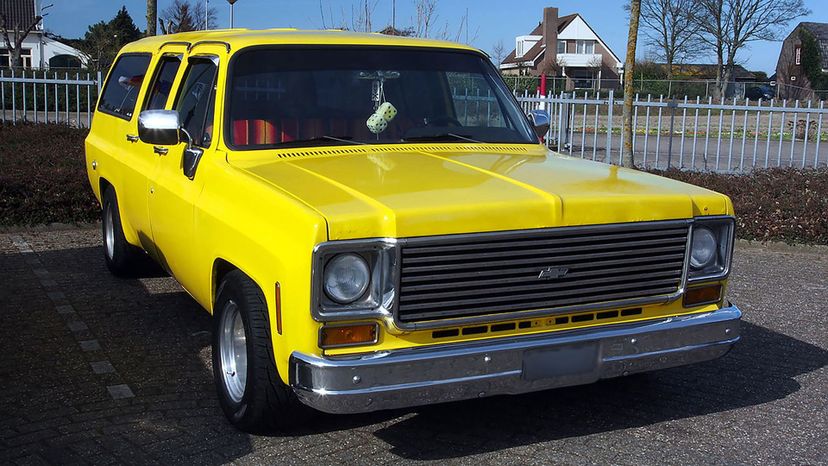
The Suburban name has been in use on Chevy passenger trucks since the mid 1930s. That makes it the longest-running name in the U.S. auto industry. The '70s Suburban became popular as a family vehicle, especially for big families.
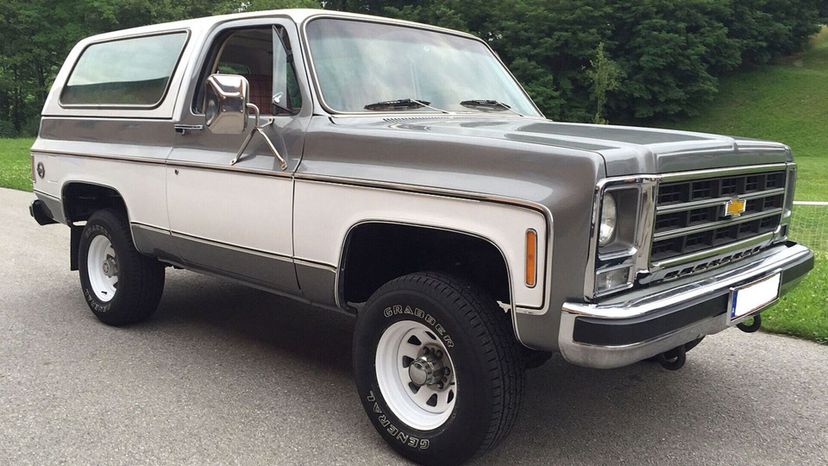
Chevy produced the K5 Blazer between 1969 and 1995. The early '70s version of this SUV had a removable hardtop, but later models came with a removable half-cab to reduce issues with leaking. The GMC version of the K5, called the Jimmy, came out in 1970.
Advertisement
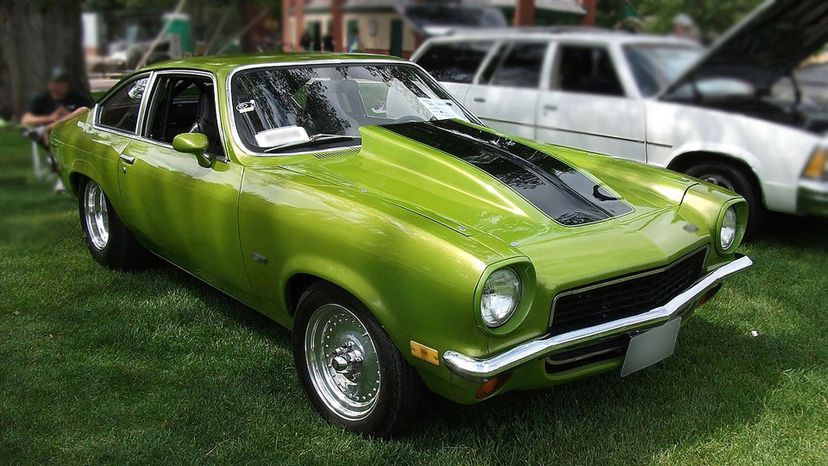
The subcompact Vega was on Chevy lots from 1971 to 1977. Despite being named Motor Trend's Car of the Year in 1971, early issues with quality, reliability and rust gave it a poor reputation that proved hard to shake. Hotrodders liked to customize Vegas and install V8 engines in them.
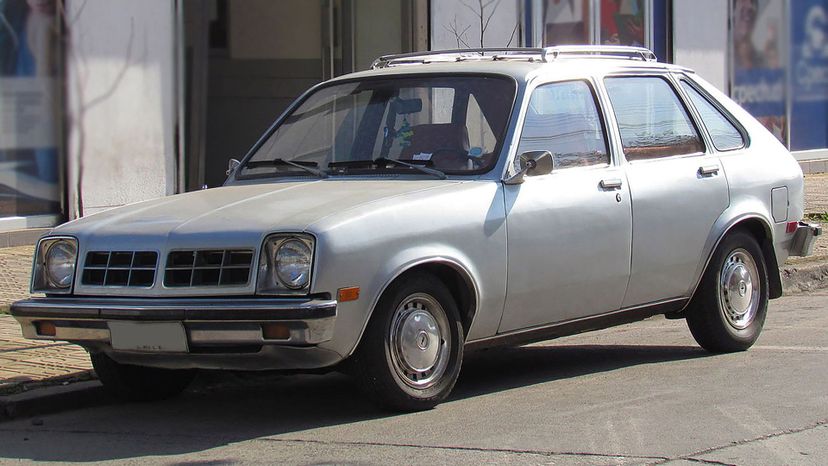
Chevy produced the Chevette subcompact between 1976 and 1987. This slow but fuel-efficient hatchback was one of the top-selling small cars in the U.S. at the end of the '70s, and Chevy sold nearly three million. It was also sold as the Pontiac T1000 in from 1981-1987.
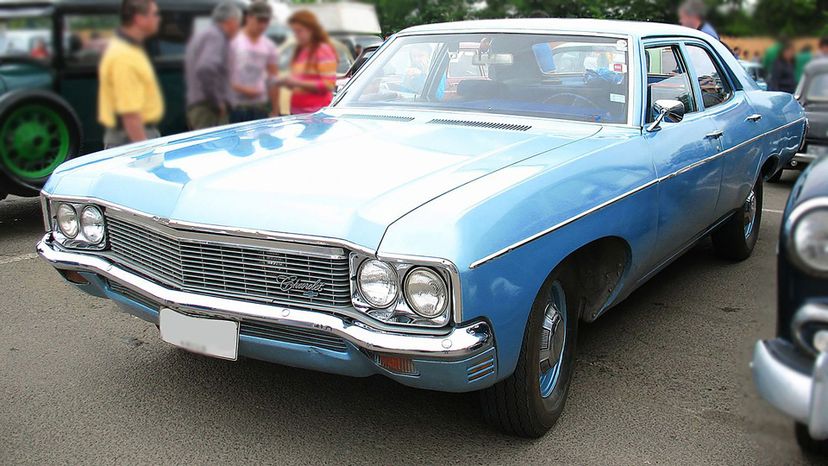
Chevy used the Bel Air name in the U.S. from 1950 until 1975. On the 1970s models, it had a few less frills than the Impala but was otherwise the same car.
Advertisement
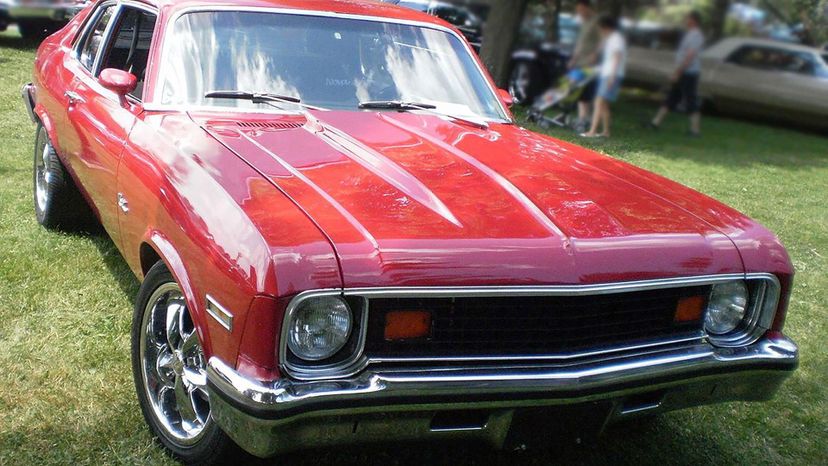
Chevrolet redesigned its Chevy II compact for 1968, and the following year changed the name to Nova, which had previously identified only the top trim line. In 1979, the front-wheel drive Citation replaced the Nova.
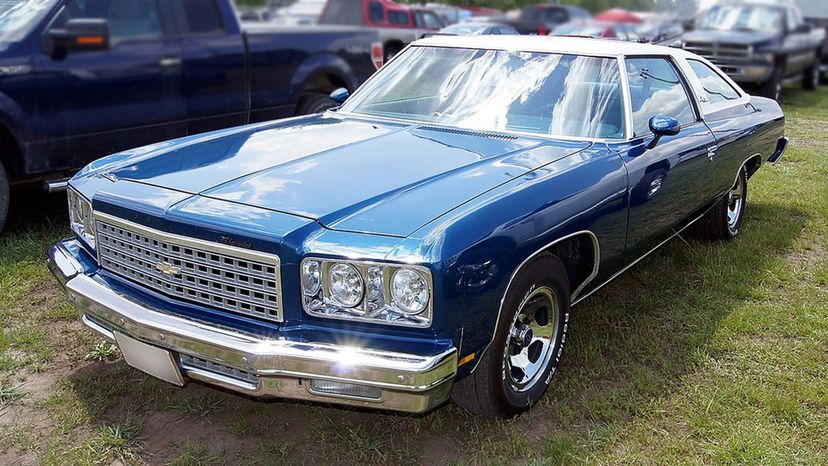
Chevy has been making Impalas on and off since 1958. The 1971-1976 version was the last of the giants, as the series was downsized for 1977 (but was actually roomier inside). A 1976 customized model is shown. The name was relaunched on a front-wheel drive model in 2000.
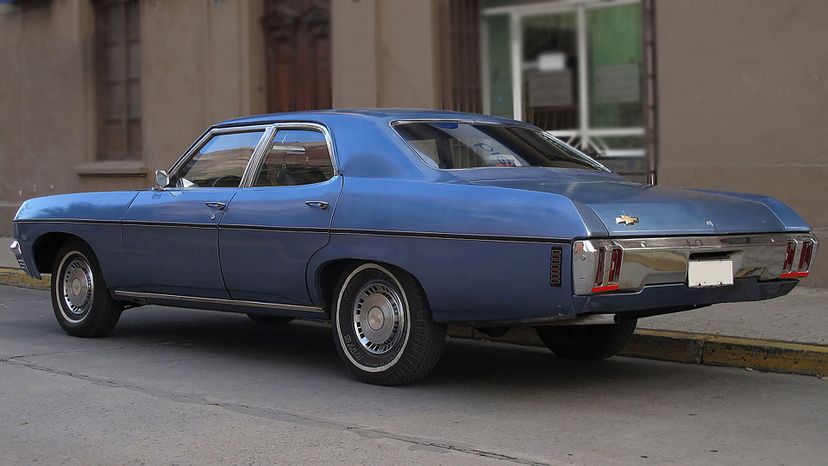
Chevy borrowed the Biscayne name from Biscayne Bay, Florida for a low-line model beginning in 1958. It continued as the entry-level full-size car until 1972, and many were sold to taxi and police fleets.
Advertisement
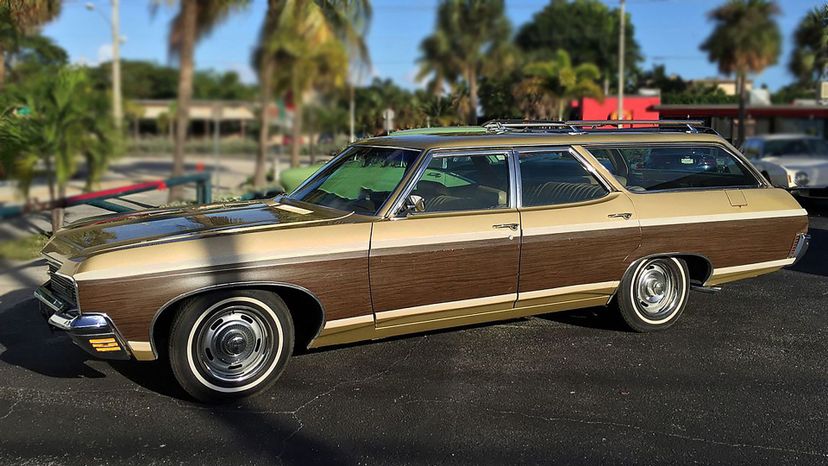
Produced from 1969 to 1972, the Kingswood Estate (shown) was Chevy's top-of-line full-size station wagon, based on the Caprice. The regular Kingswood, lacking the faux wood paneling on the Estate, was based on the Impala, and the Townsman was based on the Bel Air trim. There was a low-line Brookwood below that. (The Kingswood name had previously been used on Chevy's 1959-1960 wagon.)
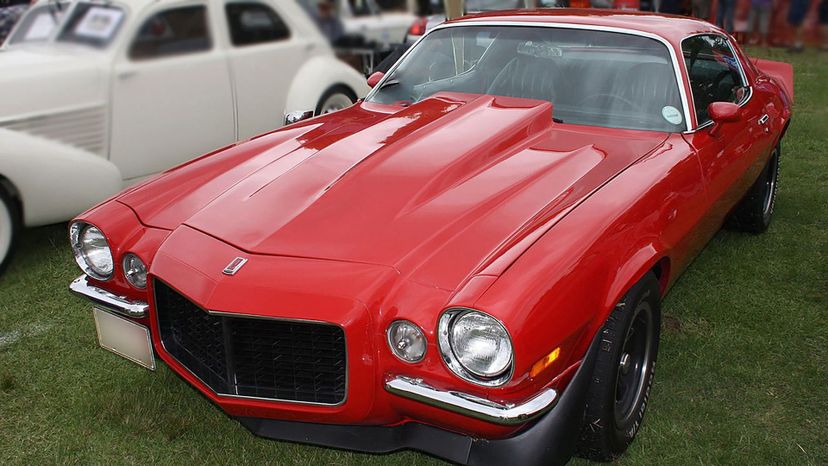
The Rally Sport, (RS) option was available on the Camaro starting in 1967. In the 1970-1973 Camaro, the design used an exclusive "split bumper†front end inspired by early 1960s Ferraris.
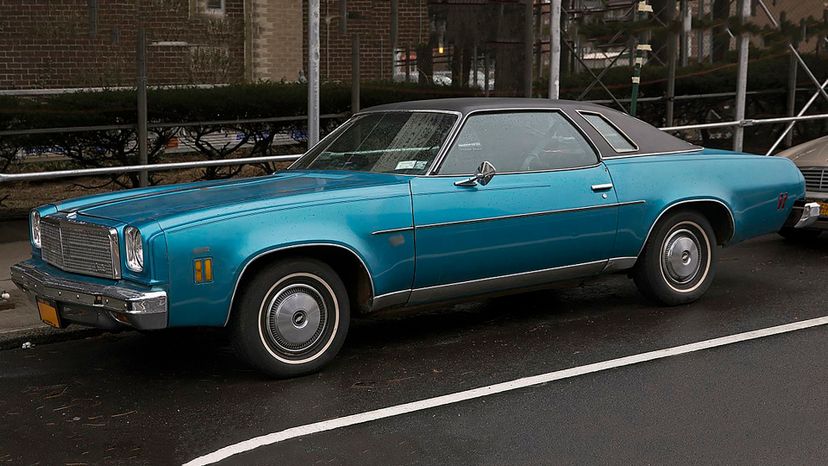
The Malibu was the high-line trim level of Chevy's midsize Chevelle from 1964-1977. The downsized 1978-1983 version dropped "Chevelle†from its name. Sedan, coupe and wagon body styles were available. The Malibu name returned for a midsize front-drive sedan in 1997, and it's been around ever since.
Advertisement
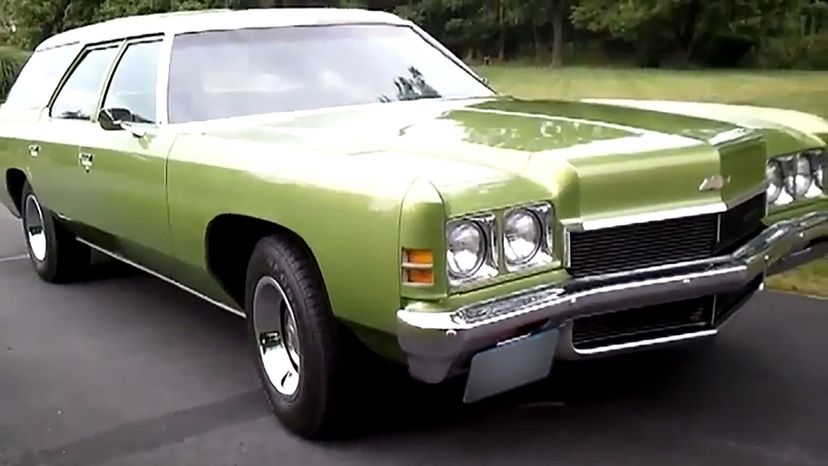
Made between 1969 and 1972, the Chevy Townsman was a full-size station wagon designed to hold up to nine passengers. There was still one no-frills trim line below it, called Brookwood, and two above it - Kingswood and Kingswood Estate.
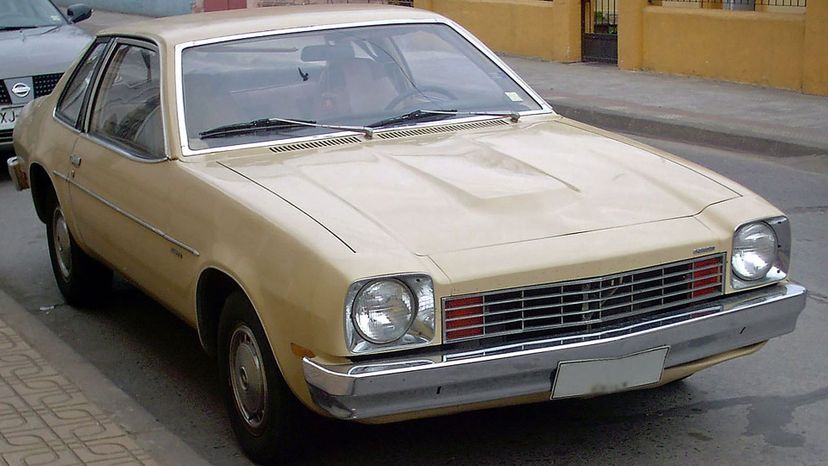
Chevy sold the compact Monza between 1975 and 1981 in several body styles, including a hatchback called the 2+2, a "notchback†coupe initially called Towne Coupe (shown). From 1976 on, the fastback version was available with a popular Spyder upgrade option. A Monza wagon was basically a Vega with a different badge.
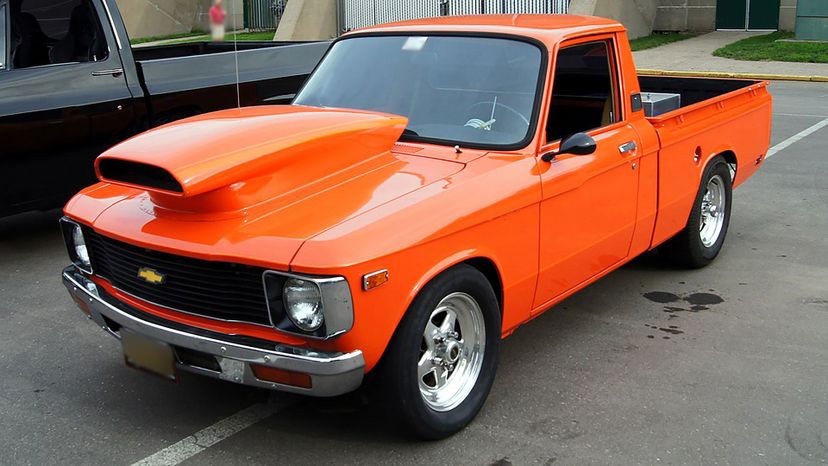
The Chevy LUV -- that's for "light utility vehicle†-- was available to U.S. buyers between 1972 and 1980. It was a rebadged version of the Isuzu Faster compact pickup imported from Japan and was later also sold under the Isuzu brand as the P'up.
Advertisement
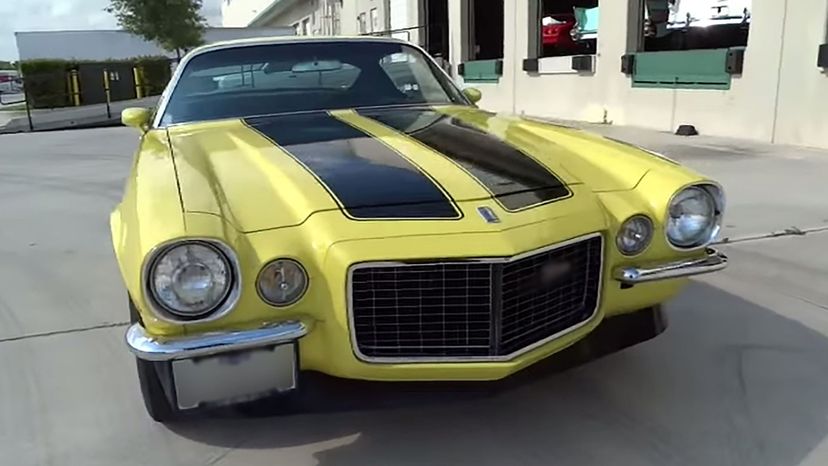
Hurst Performance, known for the late 1960s Hurst/Olds, among other special muscle cars, modified three 1970 Camaro Z28s, giving each a yellow and black paint job and a sliding fabric sunroof. They also had the Rally Sport package, identified by the "split bumper" front design.
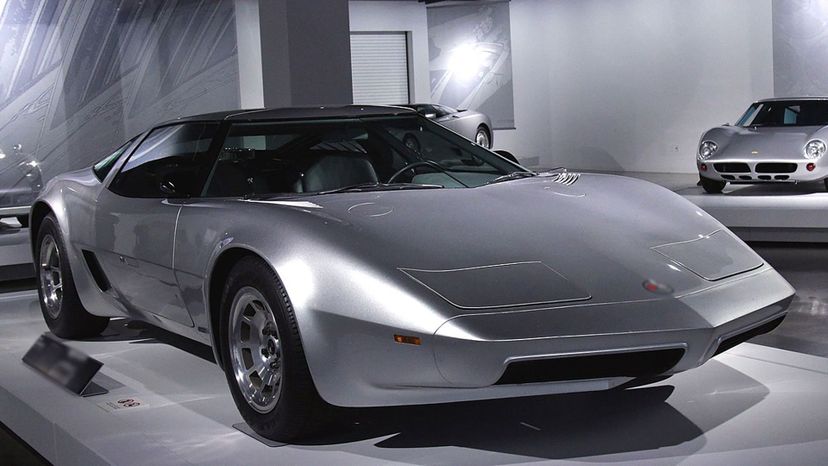
The Aerovette was a 1976 mid-engine Corvette concept car that never made it into production. With a V8, gullwing doors and a racing-style interior, there's no question this car was meant to appeal to speed fans.
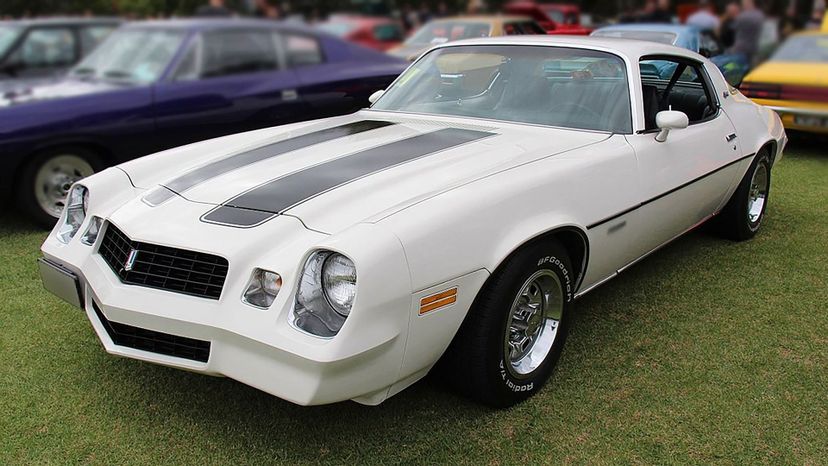
Chevy designers took inspiration for the second-generation Camaro's basic body shape from various early '60s Ferraris known as Berlinettas. In 1976, the brand adopted the Berlinetta name for a luxury version of its famous sport coupe and used it for 10 years, continuing into the car's third-gen design.
Advertisement
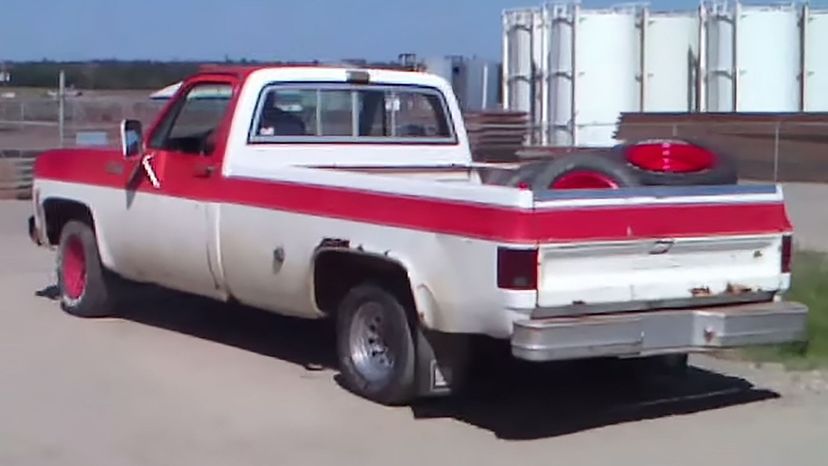
The '70s brought plenty to celebrate, including the 1976 Olympics in Montreal. In true Chevy fashion, the company came out with a special Olympic Edition pickup to celebrate the games.
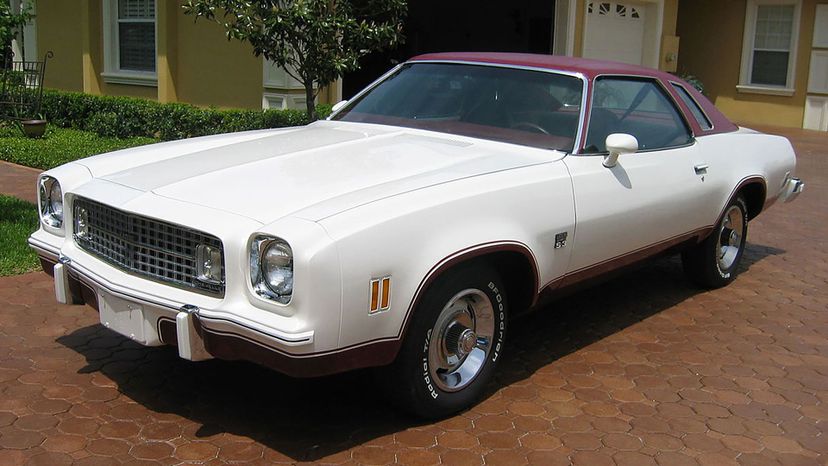
Chevy produced the Chevelle Laguna between 1973 and 1976 as a trim line above the Malibu. Like Malibu, its name came from an upscale California beach town. The Laguna is easy to recognize thanks to its integrated body-color bumper, which wasn't found on other Chevelles.
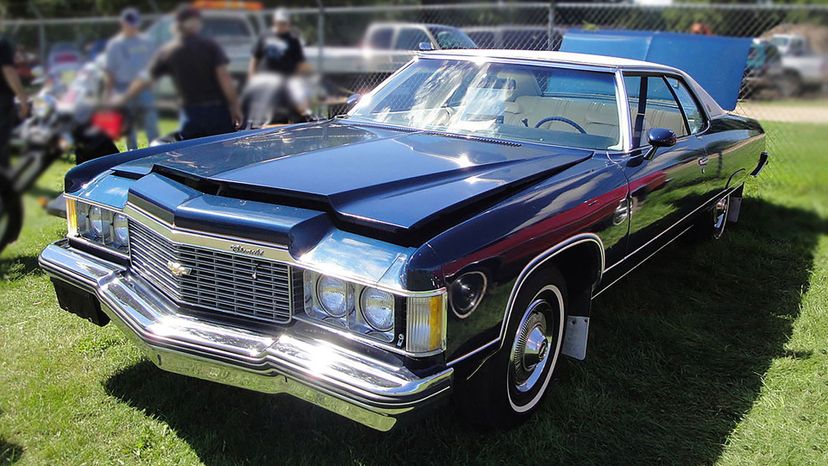
American carmakers started getting into the patriotic spirit before the Bicentennial. In 1974, Chevy introduced the Spirit of America Impala, offering this special edition in either white or dark blue with a red or blue dash and bright white seats.
Advertisement
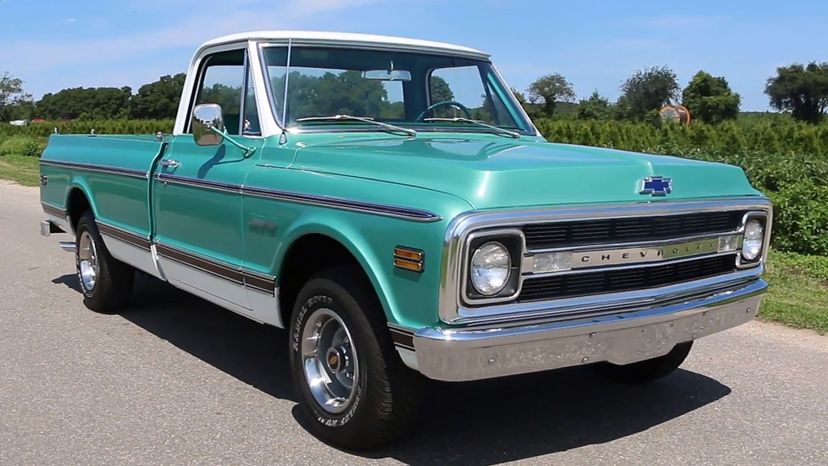
The 1970s CST, or Custom Sports Truck, was an upgrade over the standard C-10 pickup, but below the Cheyenne.
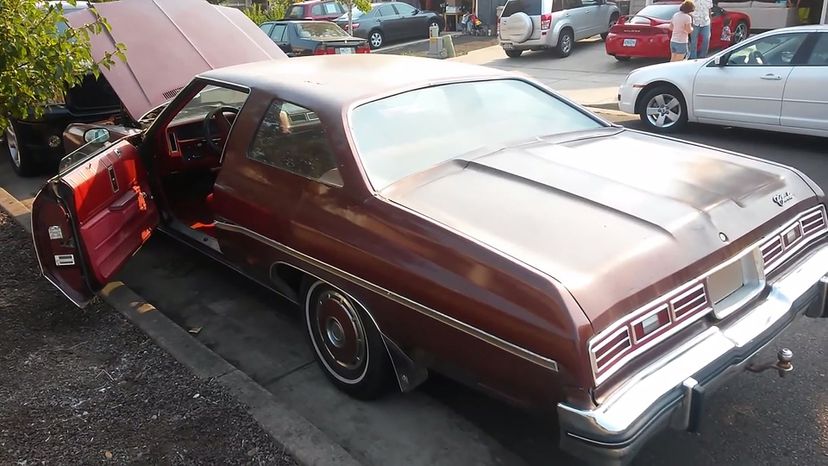
Starting in 1975, Impala buyers could add the Landau option, which featured an "elk-grained†vinyl roof, special color and striping options, remote-controlled mirrors and other amenities. Several other carmakers offered "landau†models, too, which usually had a half-vinyl roof. The name originated in the 1700s for horse-drawn luxury coaches first made in Landau, Germany.